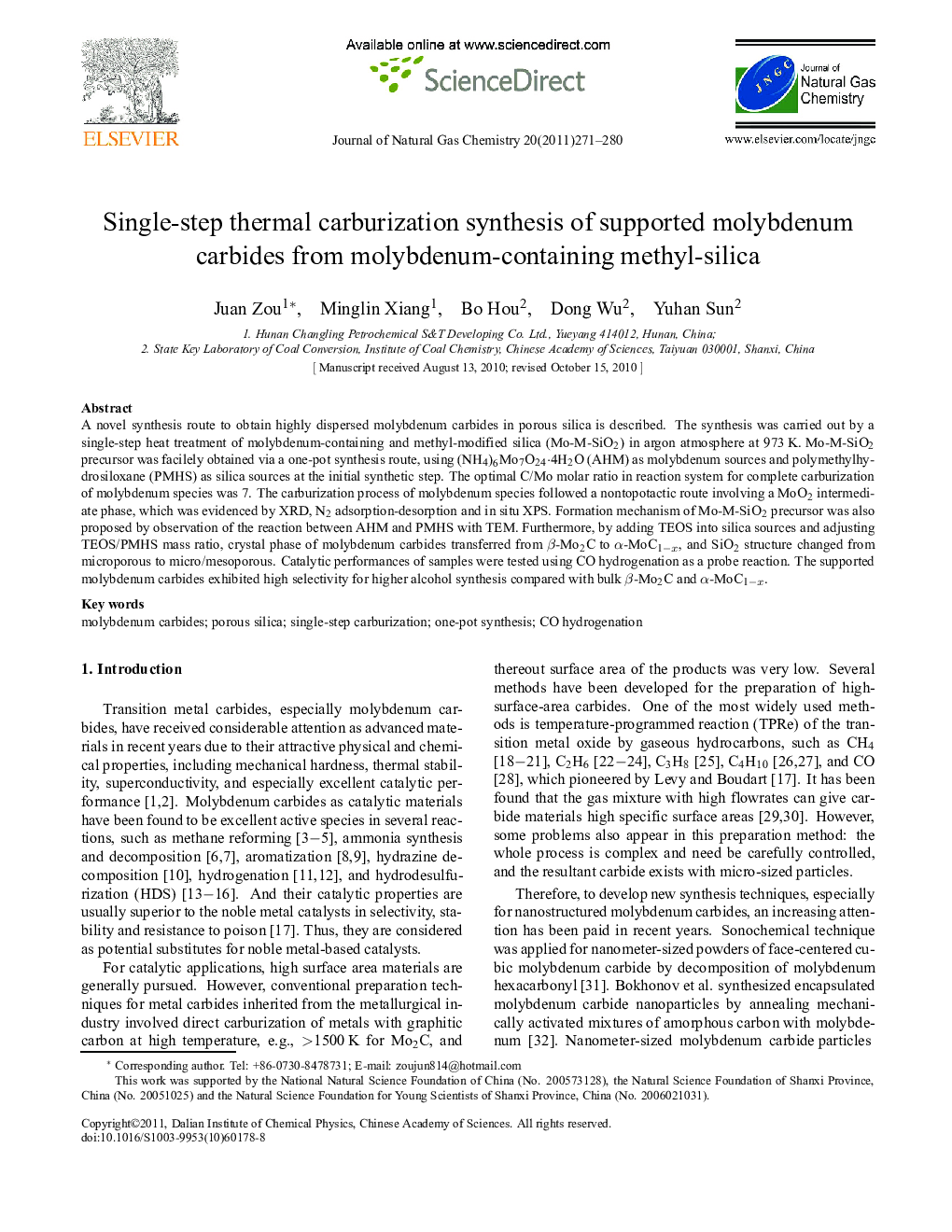| Article ID | Journal | Published Year | Pages | File Type |
|---|---|---|---|---|
| 71472 | Journal of Natural Gas Chemistry | 2011 | 10 Pages |
A novel synthesis route to obtain highly dispersed molybdenum carbides in porous silica is described. The synthesis was carried out by a single-step heat treatment of molybdenum-containing and methyl-modified silica (Mo-M-SiO2) in argon atmosphere at 973 K. Mo-M-SiO2 precursor was facilely obtained via a one-pot synthesis route, using (NH4)6Mo7O24·4H2O (AHM) as molybdenum sources and polymethylhydrosiloxane (PMHS) as silica sources at the initial synthetic step. The optimal C/Mo molar ratio in reaction system for complete carburization of molybdenum species was 7. The carburization process of molybdenum species followed a nontopotactic route involving a MoO2 intermediate phase, which was evidenced by XRD, N2 adsorption-desorption and in situ XPS. Formation mechanism of Mo-M-SiO2 precursor was also proposed by observation of the reaction between AHM and PMHS with TEM. Furthermore, by adding TEOS into silica sources and adjusting TEOS/PMHS mass ratio, crystal phase of molybdenum carbides transferred from β-Mo2C to α-MoC1-x, and SiO2 structure changed from microporous to micro/mesoporous. Catalytic performances of samples were tested using CO hydrogenation as a probe reaction. The supported molybdenum carbides exhibited high selectivity for higher alcohol synthesis compared with bulk β-Mo2C and αMoC1-x.
